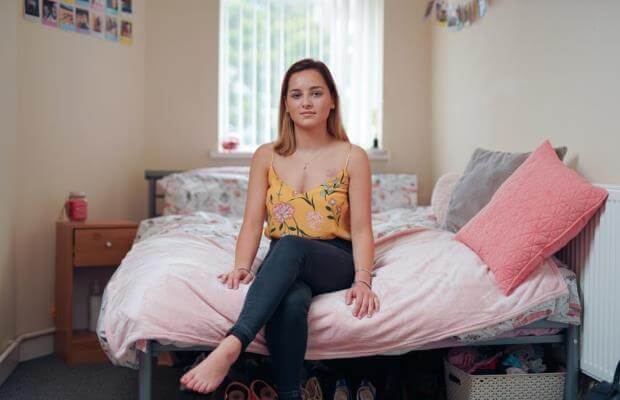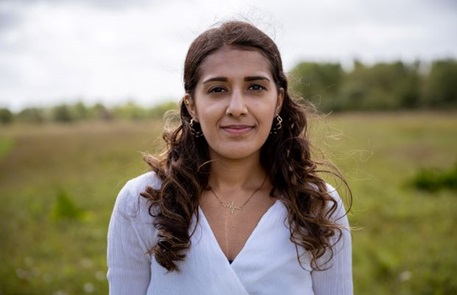
Living with congenital heart disease as an adult
Almost one in 100 babies in the UK are born with congenital heart disease, but what happens to them later in life? We hear Katie Miller’s experience of living with congenital heart disease as an adult.


Katie Miller, 24, from south-west London, was born with several heart problems. She had congenital complete heart block (an abnormal heart rhythm caused by a delay to the electrical impulses that tell your heart to beat); patent ductus arteriosus or PDA (where blood mistakenly flows between two of the major arteries connected to the heart); and a problem with one of her heart valves.
Finding support as a teenager
“The heart block was picked up at a routine scan when my mum was 20 weeks pregnant, and the PDA and valve disease were diagnosed when I was one year old. I had a procedure to close the PDA and when I went into heart failure at four years old, I had a pacemaker inserted. I’m now on my fourth pacemaker.
Until I was 15 years old, my condition didn’t really affect me. I was still doing everything my friends were doing. Then when I got to 15 my health went downhill. I wasn’t able to take part in sports because I wasn’t well enough and when I went out with my friends in the evening, I would have to come home early for a nap because I was so tired. That was quite embarrassing.
When I got to 18 or 19, my symptoms got worse... But my friends, family and university were all so supportive.
When I got to 18 or 19, my symptoms got worse. Just a short walk to university would make me become very short of breath and sweaty, and that was difficult. But my friends, family and university have all been so supportive.
I have been to Teen Heart events through the BHF in the past. I made some really good friends through that and I loved it.
Transitioning to adult support services
When you get to 16, you realise you’ll be leaving the services at the children’s hospital soon and you’re invited to transition days to learn about the adult services at the hospital. I then received my appointment letter for the adult services.
In children’s services, the doctors will always speak to your parents. When you are a younger child that’s OK, but when you get older you want them to speak to you. That’s the difference in adult services. They are only talking to me and I prefer that.
Surgery and scars
In July 2017 I had open heart surgery to replace my tricuspid valve. I had some restrictions at first and got really tired for the first few weeks, but I soon settled again and I felt better than ever! My energy levels were so much better than previous surgeries I've had.
I am feeling positive about the future. I think now I’ve had my operation my health won’t be that bad, but in the future I know I’ll need more surgeries. One day I will need to think about how this will affect my work and things like having a family.
My scar took some time to get used to and I didn't like it at first, but I have grown to love it. My pacemaker scars are quite keloid so I was always quite conscious of them, too. However, they don’t bother me at all now! My boyfriend and I have been together for two years, and he loves my scars just as much as I do. I’ve had a real turn around!
Helping other heart patients like me
In 2018 I graduated with a Bachelor of Science in Cardiac Physiology from Swansea University - I got First Class Honours which I still cannot believe. I'm now working as a Senior Cardiac Physiologist at Royal Brompton Hospital. I was inspired to do this based on my own experience and meeting staff from different specialties.
My role at works includes any diagnostic test on the heart. I will lead the exercise stress tests for paediatric and congenital patients. I also help to run the pacemaker clinic, which involves following up pacemaker and ICD patients of all ages and making any necessary programming changes.
Most of my week is spent in the cardiac catheter lab, this is where patients will undergo invasive procedures to help treat or manage their conditions. We often implant pacemakers, implant valves, perform valvuloplastys and many more procedures. The youngest patient I have helped to treat in the catheter lab was just nine hours old! My job is so interesting, I know that it’s for me.
My advice to other young people with congenital heart conditions is to live the life you want to live. Having a heart condition shouldn’t stop you finding things you enjoy and living a happy and fulfilled life. There will be hurdles along the way, but with the right mindset and determination you can overcome anything!"
What to read next...


